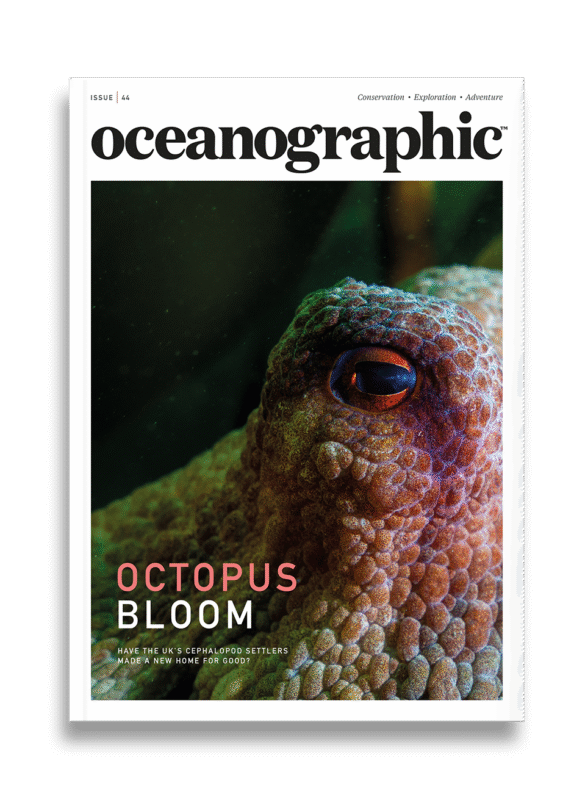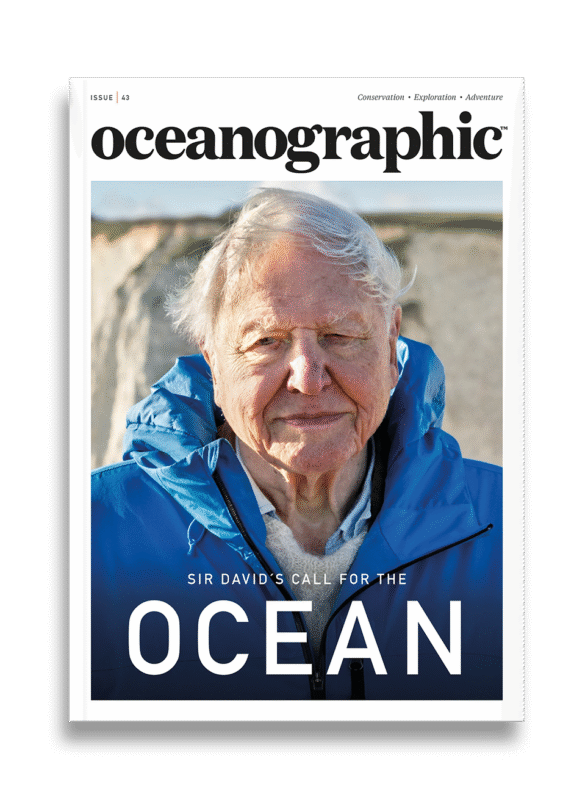A new study, published in the African Journal of Marine Science, shed some light on great white sharks using their instincts to avoid predation as a group for the long-term. After an orca pair predated on great white sharks off the coast of South Africa between February and June of 2017, a large number of sharks were driven away from their aggregation site, according to the study.
Since 2017, eight white shark carcasses have washed up on beaches in Gansbaai in South Africa’s Western Cape Province. Some of these carcasses had their livers and hearts removed – well-known signs of orca predation. The researchers behind the study who analysed the wounds believe that one pair of orcas with distinctive dorsal fins was behind the attacks, who most likely killed more sharks that haven’t washed up on beaches.
Carried out over five and a half years, the research programme tracked 14 sharks when orcas where present in the Gansbaai area that is a world-renowned aggregation site. The data showed that they moved away from site, whie visual sightings also decreased significantly during that time.

“Initially, following an orca attack in Gansbaai, individual great white sharks did not appear for weeks or months. What we seem to be witnessing though is a large-scale avoidance (rather than a fine-scale) strategy, mirroring what we see used by wild dogs in the Serengeti in Tanzania, in response to increased lion presence. The more the orcas frequent these sites, the longer the great white sharks stay away,” commented lead author Alison Towner.
She added: “The research is particularly important, as by determining how large marine predators respond to risk, we can understand the dynamics of coexistence with other predator communities; and these dynamics may also dictate the interactions between competitors or intra-guild predator/prey relationship.”
This exodus of great white sharks in the Gansbaai area has further implications on the ecosystem which is slowly changing. According to the research team, a new predator has established itself in the region – the bronze whaler shark.
Towner explains: “Balance is crucial in marine ecosystems. For example, with no great white sharks restricting Cape Fur seal behaviour, the seals can predate on critically endangered African Penguins, or compete for the small pelagic fish they eat. That’s a top -down impact, we also have ‘bottom up’ trophic pressures from extensive removal of abalone, which graze the kelp forests these species are all connected through. To put it simply, although this is a hypothesis for now, there is only so much pressure an ecosystem can take, and the impacts of orcas removing sharks, are likely far wider-reaching.”
The exact reason behind the great white shark predation is still unclear and there are several options why the shark numbers are declining in the region, including higher sea surface temperatures, fishing-related declines in prey, and direct fishing of great white sharks.
For the sharks that already face population pressures in South Africa, however, the orca predation could be a big issue. Towner says: “The orcas are targeting subadult great white sharks, which can further impact an already vulnerable shark population owing to their slow growth and late-maturing life-history strategy. Increased vigilance using citizen science (e.g. fishers’ reports, tourism vessels), as well as continued tracking studies, will aid in collecting more information on how these predations may impact the long-term ecological balance in these complex coastal seascapes.”
Read the full study here.
For more from our Ocean Newsroom, click here.
Photography courtesy of Unsplash.




